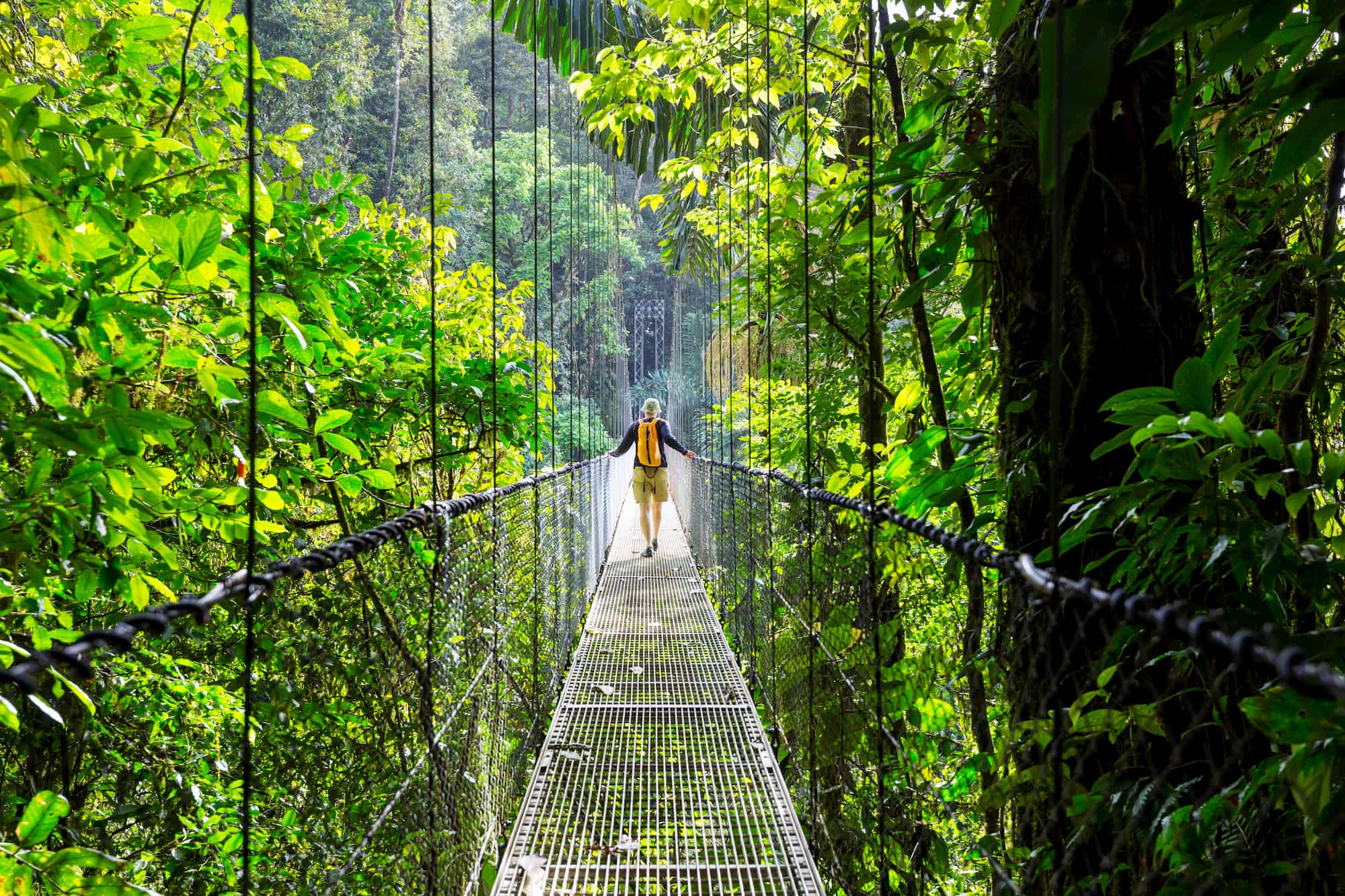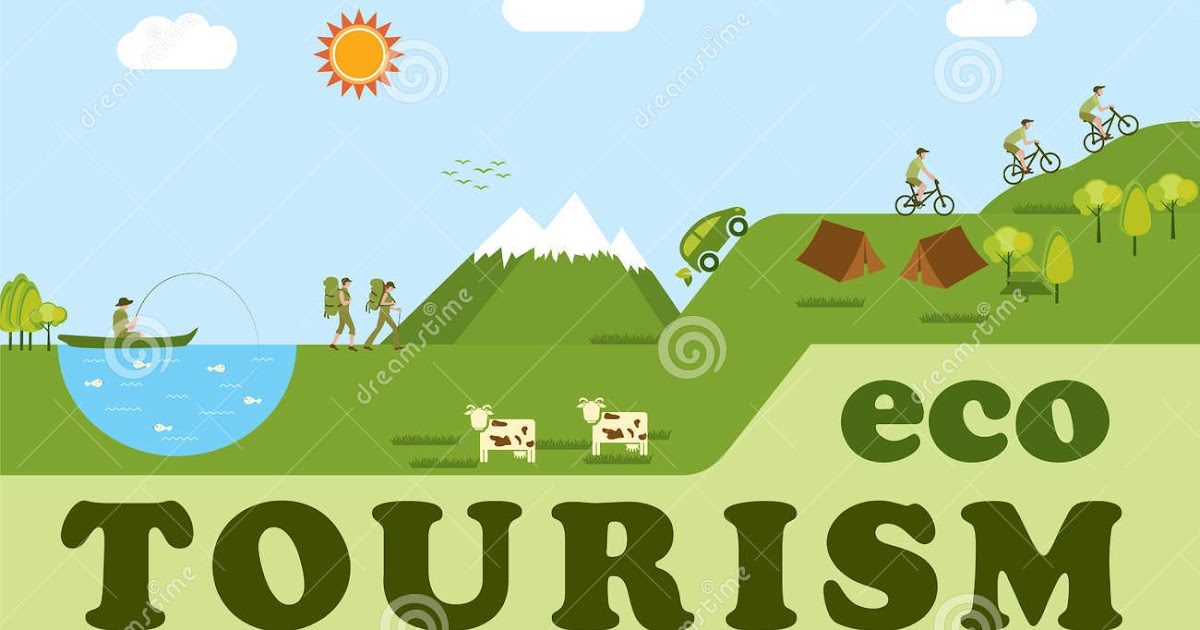Embark on a journey into the realm of types of ecotourism, where responsible travel practices intertwine with nature’s wonders. Ecotourism offers a unique blend of adventure and environmental stewardship, inviting travelers to immerse themselves in breathtaking destinations while fostering sustainability.
From wildlife safaris to cultural immersions, ecotourism encompasses a diverse spectrum of experiences that promote the preservation of natural and cultural heritage. Let’s delve into the various types of ecotourism and discover the transformative power of travel that respects and protects our planet.
Types of Ecotourism

Ecotourism is a form of responsible tourism that focuses on conserving the environment and supporting sustainable practices. It involves traveling to natural areas, respecting local cultures, and contributing to the preservation of biodiversity. The principles of ecotourism include minimizing environmental impact, supporting local communities, and promoting education and awareness.
Examples of Ecotourism
Some examples of ecotourism activities include:
- Wildlife safaris that support conservation efforts and promote sustainable practices.
- Hiking and camping trips that minimize environmental impact and promote responsible land use.
- Birdwatching tours that contribute to research and conservation efforts.
- Educational tours that focus on environmental issues and promote sustainable practices.
- Cultural tours that support local communities and promote understanding of different cultures.
Ecotourism can provide a variety of benefits, including economic benefits for local communities, environmental protection, and educational opportunities. By choosing to participate in ecotourism activities, travelers can help support sustainable practices and contribute to the preservation of natural and cultural heritage.
Benefits of Ecotourism
Ecotourism offers a myriad of benefits that extend beyond the realm of environmental conservation. It has the potential to generate substantial economic gains for local communities while simultaneously fostering environmental stewardship and promoting cultural preservation.
Economic Benefits
Ecotourism is a lucrative industry that can create employment opportunities, boost local economies, and contribute to infrastructure development. Tourists seeking authentic and sustainable experiences are willing to pay a premium for guided tours, accommodations, and local products. This influx of revenue can support local businesses, create jobs in the tourism sector, and generate tax revenue for community development projects.
Environmental Benefits
Ecotourism promotes the preservation and restoration of natural ecosystems. By providing economic incentives for conservation, it discourages activities that harm the environment, such as deforestation, overfishing, and pollution. Ecotourism also raises awareness about environmental issues and encourages visitors to adopt sustainable practices, reducing their ecological footprint.
Ecotourism is all about enjoying the natural world while protecting it. There are many different types of ecotourism, including agro eco tourism , which focuses on farming and agriculture. By learning about sustainable farming practices, visitors can gain a greater appreciation for the environment and the importance of protecting it.
Agro eco tourism is just one of the many ways that people can enjoy the natural world while helping to preserve it.
Successful Ecotourism Projects
Numerous ecotourism projects have demonstrated the positive impacts it can have on both the environment and local communities. For example, the Great Barrier Reef Marine Park in Australia has implemented strict regulations to protect its fragile ecosystem while allowing visitors to enjoy its underwater wonders.
In Costa Rica, the Monteverde Cloud Forest Reserve has become a model for sustainable tourism, generating revenue for conservation efforts while preserving its rich biodiversity.
Challenges of Ecotourism: Types Of Ecotourism

Ecotourism, while beneficial, faces several challenges that hinder its full potential and sustainability. These challenges can be broadly categorized into environmental and social aspects, each requiring careful consideration and mitigation strategies.
Environmental Challenges, Types of ecotourism
- Habitat degradation:Increased tourist traffic can lead to habitat destruction and fragmentation, disturbing wildlife and disrupting natural ecosystems.
- Pollution:Improper waste disposal, noise, and light pollution from tourist activities can negatively impact the environment and wildlife.
- Overuse of resources:Uncontrolled tourism can strain local resources such as water, energy, and food, leading to depletion and environmental degradation.
Social Challenges
- Cultural erosion:Mass tourism can lead to the loss of traditional cultures and values, as local communities adapt to the needs of tourists.
- Economic inequality:Ecotourism can create economic disparities between local communities and tourism operators, leading to social tensions and resentment.
- Community displacement:In some cases, ecotourism projects have resulted in the displacement of local communities from their traditional lands or livelihoods.
Best Practices for Ecotourism
Ecotourism is a form of responsible tourism that focuses on conserving the environment and supporting local communities. To ensure that ecotourism is truly sustainable, it’s important to follow best practices that minimize negative impacts and maximize positive outcomes.
Ecotourism encompasses a wide range of activities, from nature-based tourism to cultural tourism. For those seeking a more organized approach, the ecotourism association provides a platform for connecting with like-minded individuals and exploring various types of ecotourism. Whether it’s wildlife safaris, sustainable farming experiences, or community-based tourism, the association offers a gateway to ethical and environmentally conscious travel.
Sustainable Tourism
Sustainable tourism is a key principle of ecotourism. It involves managing tourism activities in a way that meets the needs of present tourists and hosts while preserving the environment and cultural heritage for future generations.
Responsible Ecotourism
Responsible ecotourism involves adopting practices that protect the environment and respect local communities. Here are some tips:
- Choose tour operators that are committed to sustainable practices.
- Minimize your environmental impact by packing light, recycling, and conserving water.
- Respect local customs and traditions.
- Support local businesses and purchase souvenirs that are made by local artisans.
- Educate yourself about the local environment and culture before you travel.
By following these best practices, you can help ensure that ecotourism is a positive force for both the environment and local communities.
The Future of Ecotourism
Ecotourism is a rapidly growing industry, and it is expected to continue to grow in the years to come. As people become more aware of the importance of protecting the environment, they are increasingly looking for ways to travel that have a positive impact on the planet.
There are a number of emerging trends in ecotourism, including:
- Increased demand for sustainable travel:Travelers are increasingly looking for ways to travel that have a minimal impact on the environment. This includes choosing destinations that are committed to sustainability, using eco-friendly transportation, and staying in eco-friendly accommodations.
- Growing interest in experiential travel:Travelers are increasingly looking for experiences that are authentic and immersive. This includes visiting local communities, learning about traditional cultures, and participating in conservation activities.
- Increased use of technology:Technology is playing an increasingly important role in ecotourism. This includes using apps to find sustainable travel options, track your environmental impact, and connect with local communities.
These trends are expected to continue to shape the future of ecotourism. As ecotourism becomes more popular, it is likely to have a positive impact on the environment and local communities.
Predictions for the Future of Ecotourism
Here are some predictions for the future of ecotourism:
- Ecotourism will become more mainstream. As more people become aware of the importance of sustainability, ecotourism will become more popular. This will lead to more destinations offering ecotourism experiences, and more travelers choosing to travel sustainably.
- Ecotourism will become more experiential. Travelers will increasingly seek out experiences that are authentic and immersive. This will lead to a growing demand for tours that focus on local culture, conservation, and community involvement.
- Ecotourism will become more affordable. As ecotourism becomes more popular, it will become more affordable. This will make it easier for people to travel sustainably, regardless of their budget.
The future of ecotourism is bright. As more people become aware of the importance of sustainability, ecotourism will continue to grow. This will have a positive impact on the environment, local communities, and travelers themselves.
Final Thoughts

As we conclude our exploration of types of ecotourism, it’s evident that responsible travel practices are not merely buzzwords but essential principles for preserving our planet’s delicate ecosystems and cultural treasures. By embracing the principles of ecotourism, we not only create unforgettable travel experiences but also contribute to the well-being of local communities and the conservation of our natural world for generations to come.
Key Questions Answered
What are the core principles of ecotourism?
Ecotourism adheres to three fundamental principles: minimizing environmental impact, promoting economic benefits for local communities, and fostering cultural understanding and respect.
How can I identify genuine ecotourism operators?
Look for certifications from reputable organizations like the Rainforest Alliance or Green Globe, which ensure that operators meet strict environmental and social standards.
